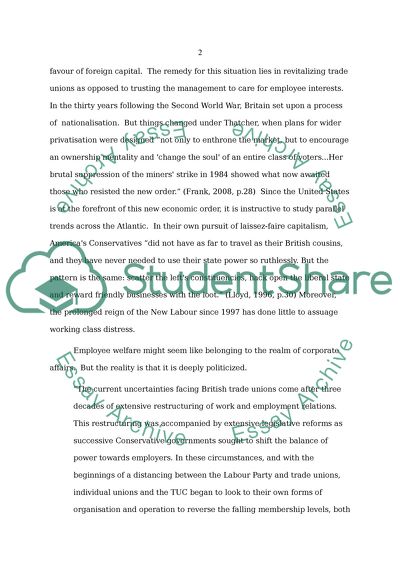Cite this document
(“Critically assess the proposition that 'workers no longer need to Essay”, n.d.)
Retrieved from https://studentshare.org/miscellaneous/1574989-critically-assess-the-proposition-that-workers-no-longer-need-to-berepresented-at-work-by-a-trade-union-or-other-body-in-the-21st-century-as-management-take-full-account-of-the-needs-and-views-or-workers-whenmaking-decisions-that-affect-them
Retrieved from https://studentshare.org/miscellaneous/1574989-critically-assess-the-proposition-that-workers-no-longer-need-to-berepresented-at-work-by-a-trade-union-or-other-body-in-the-21st-century-as-management-take-full-account-of-the-needs-and-views-or-workers-whenmaking-decisions-that-affect-them
(Critically Assess the Proposition That 'Workers No Longer Need to Essay)
https://studentshare.org/miscellaneous/1574989-critically-assess-the-proposition-that-workers-no-longer-need-to-berepresented-at-work-by-a-trade-union-or-other-body-in-the-21st-century-as-management-take-full-account-of-the-needs-and-views-or-workers-whenmaking-decisions-that-affect-them.
https://studentshare.org/miscellaneous/1574989-critically-assess-the-proposition-that-workers-no-longer-need-to-berepresented-at-work-by-a-trade-union-or-other-body-in-the-21st-century-as-management-take-full-account-of-the-needs-and-views-or-workers-whenmaking-decisions-that-affect-them.
“Critically Assess the Proposition That 'Workers No Longer Need to Essay”, n.d. https://studentshare.org/miscellaneous/1574989-critically-assess-the-proposition-that-workers-no-longer-need-to-berepresented-at-work-by-a-trade-union-or-other-body-in-the-21st-century-as-management-take-full-account-of-the-needs-and-views-or-workers-whenmaking-decisions-that-affect-them.


